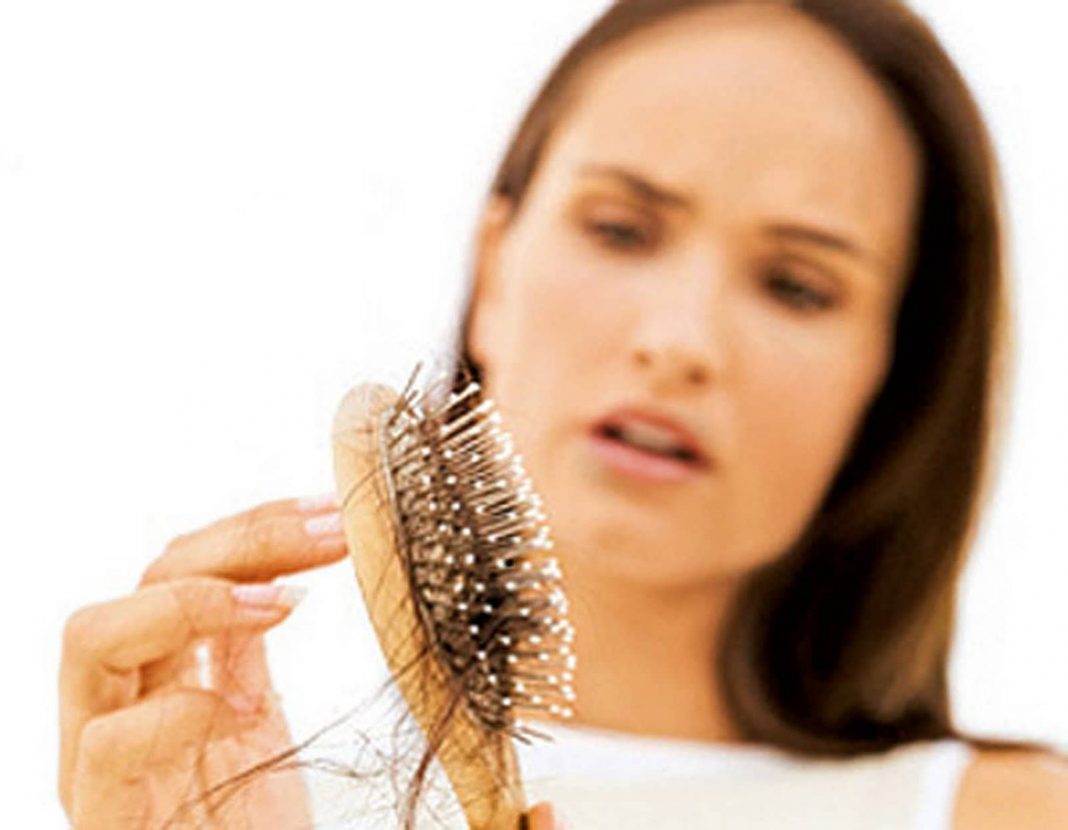Men are most likely to suffer from hair loss compared to women. But thinning hair and hair loss are also common in women and the reasons can range from temporary or simple vitamin deficiency to more complex health condition.
There are ways to treat hair loss for both gender. You just have to know what causes the hair loss. Read on below to find out what may be causing less hair on your head.
1. Emotional stress
Emotional stress can also cause hair loss such as the death of a loved one, divorce or any traumatic life event. Experts say that emotional stress most of the time will not likely cause the hair loss but just worsen the existing problem.
To do: Your hair will start to grow back as you recover from the stress. But you can take some steps to help alleviate anxiety and stress by getting the support you need, going to therapy and exercise.
2. Physical stress
Any kind of physical trauma such as car accident, severe illness or surgery can cause hair loss temporarily. This type of hair loss or condition is known as telogen effluvium.
Hair has a life cycle; growth phase, rest phase and the shedding phase. According to a dermatologist, when you experienced a really stressful event your hair cycle goes into the shedding phase. Then hair loss becomes noticeable 3-6 months after the trauma.
To do: Your hair will start growing back on its own as your body recovers.
3. Excessive styling
Too much of everything is not good. Too much styling, dyeing and shampooing can caused external damage to hair. Chemicals and heat weaken the hair causing breakage and hair fall. It’s often the combination of coloring, blow-drying and keratin treatment that causes damage.
According to a doctor who performed a test to know if it is casued by external damage, it will simply break and those club-shaped telogen bulbs at the hair end is not visible.
To do: Avoid or minimize excessive use of flat iron or blow dryer that can overheat your hair. Set them on cool or low settings. When dyeing your hair, don’t go for a more severe color change or 1-2 shades than your normal hair color. The more chemicals are required the more severe it can cause hair breakage.
There are more ways you can take care of you hair. Always remember hair doesn’t just affect your looks, but its a good indicator of your health as well. If you are suffering from hair loss, consult a doctor about it.
4. Lack of protein
According to the American Academy of Dermatology, not getting enough protein may lead to decrease hair growth. This can happen in 2-3 months after a decrease in protein intake.
To do: Include the right amount of protein into your diet. Some good sources of protein are meat, fish, eggs and even some vegetables.
5. Anemia
According to a study, almost 1 in 10 women aged 20-49 suffers from anemia due to iron deficiency. This most common type of anemia can cause hair loss. A doctor can confirm if your are suffering from this type of anemia by doing a blood test.
To do: Taking an iron supplement can correct your problem.
6. Aging
It’s not uncommon even for women to suffer hair loss or thinning of hair as they aged or enter into their 50s and 60s. There are no concrete evidence as to why this happens as per the experts.
To do: People who are suffering from hair loss at this age can resort to using wigs, scarves and other hair styles to cover up their thin spots. But there are plenty of ways to prevent hair breakage and to keep hair shiny and healthy until you’re in your 50’s and above.
7. Male pattern baldness
Studies have shown that 2 out of 3 men experienced hair loss by age 60. This is because of nale pattern baldness. This type or condition of hair loss is caused by combo of male sex hormones and genes. This pattern of hair loss has receding hair at the temples leaving a M-shaped hairline.
To do: Available creams such as minoxidil (Rogaine) and certain oral medications like finasteride (Propecia), can prevent hair loss and even helps hair to grow. Last option is hair transplant or hair grafting.
8. Lupus
Lupus an autoimmune disease can also cause hair loss. This is a case wherein immune cells attack the hair. Hair loss of this type is permanent therefore hair will not grow back.
To do: If the hair loss is mild and not that severe, opting for a hairstyle that will hide the hair is a good option. Short hair, for example, is considered to be stronger than long hair and may hide bald patches better.
